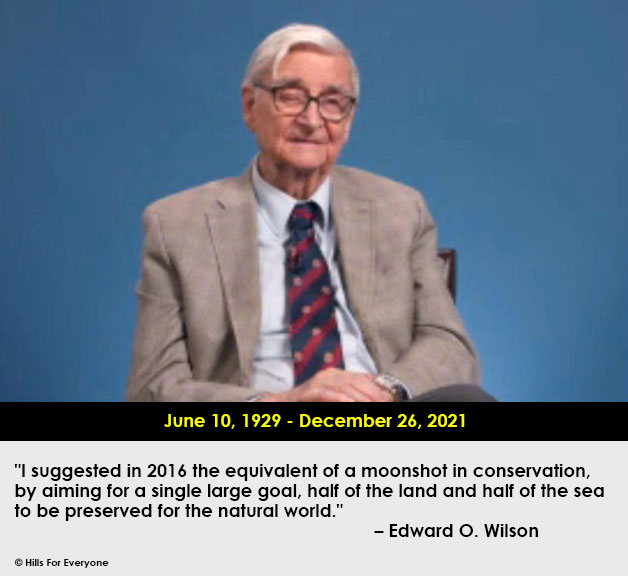The world has lost a bright star in the world of conservation, Edward O. Wilson. Known as “Ant Man” or “Charles Darwin’s natural heir,” Dr. Wilson was an entomologist focused on bringing evolutionary biology to the spotlight. His research on ants, understanding of evolution, and study of this (then) new topic of “island biogeography” launched the current science behind conservation and landscape connectivity worldwide.
He calculated that the bigger the island, the more species (biodiversity) it had, and the smaller the island the fewer species it had. Further, the closer islands were to one another the more species could arrive or depart from an island.
Applying island biogeography to the mainland, we at Hills For Everyone understood that we needed to connect the protected landscapes together. Our “islands of parkland” wouldn’t be enough to support the suite of species found here. This is foundational to why our efforts expanded beyond just the preservation of Chino Hills State Park–to instead connect the entire Puente-Chino Hills Wildlife Corridor together.
In 2016, his book (Half Earth) and the goal of preserving half of planet launched. With 50% of the land and sea protected, it would ensure our survival and that of the species found here. Dr. Wilson was a gift to science, greatly influenced our work, and his contributions will live on in our hillside system.
View his obituary in the New York Times.
